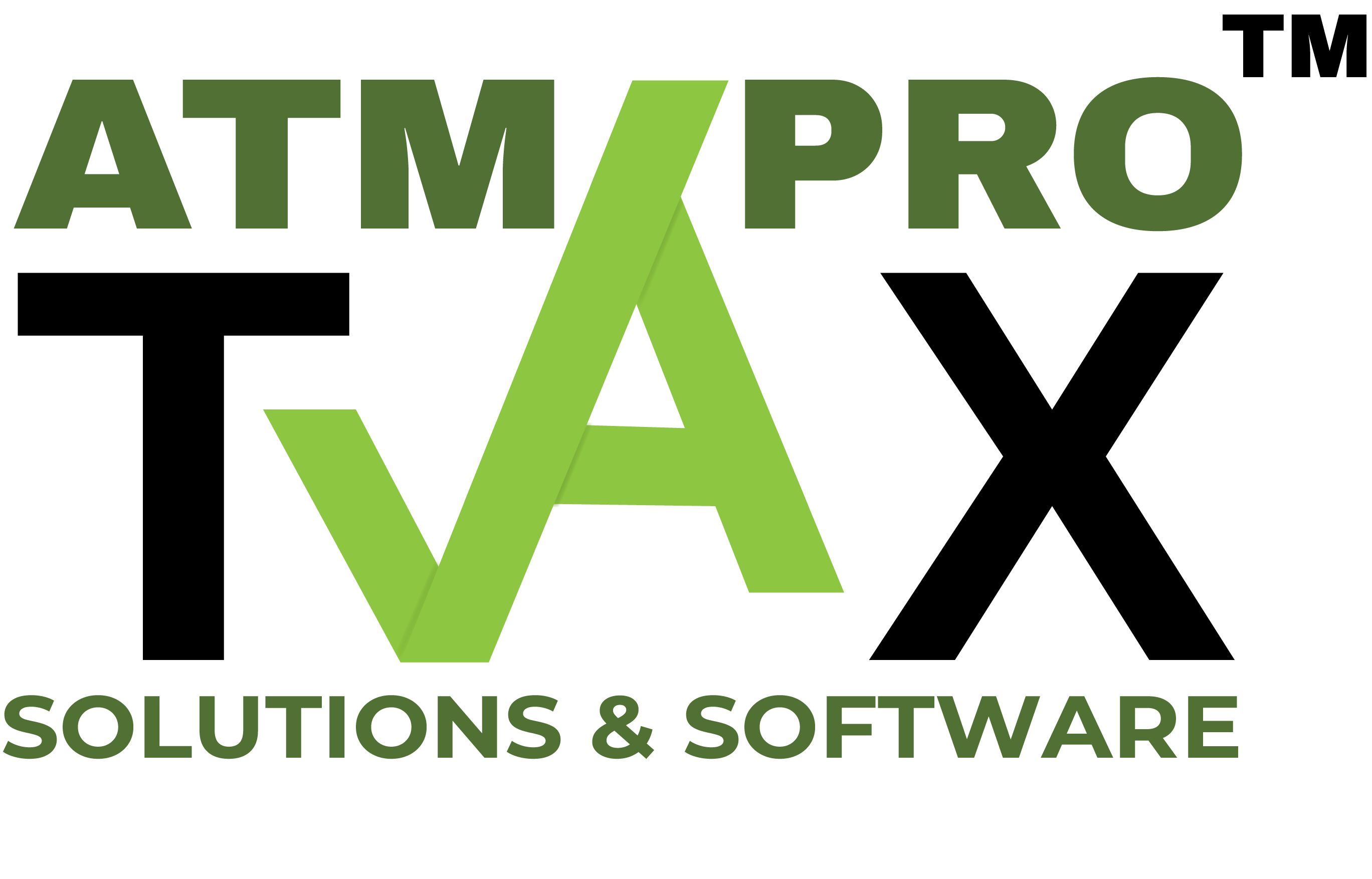Educational Center
ATM Tax Pro Solutions Educational Center will provide answers to your queries.
- What Is a Dependent Exemption?
- What Does Adjusted Gross Income Mean?
- Income Tax Return Amount Due Meaning
- Business Taxes
- What Is a Commission?
- Direct Deposit Definition
- What Is Direct Tax?
- Earned Income Definition
- What Is the Earned Income Tax Credit?
- Electronic Return Originator Meaning
- What Is a Flat Tax?
- What Is an Injured Spouse Claim?
- What Does IRS Innocent Spouse Relief Mean?
- What Is Property Tax?
- Tax Deficit Meaning
- Electronic Filing
- Employee Taxes
- Excise Tax
- Tax Exempt
- Compulsory Filing of Income Tax Return
- Gross Income Meaning
- What Are Exemptions on Tax Returns
- Test to Become a US Citizen
- What Is Head of Household
- What Is Federal Income Tax?
- What Is an Authorized E-File Provider?
- Who Needs to File a Tax Return?
- Learn All About Financial Records
- What Is An Offer in Compromise and What Does It Mean?
- What Does Non Collectible Status Mean?
- What Is a Federal Tax Lien?
- Benefits Received Principle Definition
- Ability to Pay Definition
- Bonus Definition
It’s important to know exactly what exemptions are on your tax return, and fully understand the benefits of claiming them. Exemptions reduce the amount of your income that is considered taxable, thereby reducing your tax bill. Tax exemptions may be confused with tax deductions and tax credits, all of which reduce the amount of tax you owe. But they do so differently.
- Tax exemptions reduce the amount of income that is taxable in the first place. They are based on filing status and the number of dependents you claim in that taxable year.
- You must meet certain requirements for tax deductions, which then subtract either a flat amount or a percentage from your taxable income.
- Tax credits are a dollar-for-dollar reduction to the tax you owe after everything else has been calculated on your income.
You can think of it as exemptions kick in at the beginning of your tax return, deductions happen in the middle of it, and tax credits are at the very end. Saving money on taxes through exemptions, deductions, and credits can be tricky to do correctly, but services like those provided by ATM Tax Pro can ensure you’re doing them accurately and in a way that most benefits you.
How Many Tax Exemptions Should I Claim
Preparing your taxes isn’t always the simplest thing to do. Seldom is it cut and dry, especially when it comes to figuring out tax exemptions and how to both file and claim them. Tax exemptions on a tax return act to reduce the amount you need to pay in taxes. There are multiple kinds of exemptions you can qualify for, such as:
- Personal exemptions
- Dependent exemptions
- Organizations who are tax-exempt organizations
- State exemptions
- Local exemptions.
So how many tax exemptions should you claim? There are limitations on the number of exemptions you can claim. For example, if you live alone and are single, you are allowed 2 exemptions. Married couples who have one source of income can also file two. Filing too many or too few exemptions will give you the wrong tax liability, and could cause problems in the future. Speak with a tax professional to understand how many exemptions to claim and look into other tax advantages you may qualify for.
ATM Tax Pro Can Help You Get the Best Tax Return Possible
Maximizing the benefits on your tax returns and ensuring your exemptions are accurate not only saves you money but also ensures you have no issues with the IRS in the future. ATM Tax Pro can help with this and other services like adjusting payroll tax issues, audit representation in the case the IRS encounters a mishap, payment plans to help you pay your taxes in a way you can manage to name a few. Schedule an appointment to see how the professionals at ATM Tax Pro can help with your specific tax needs.
